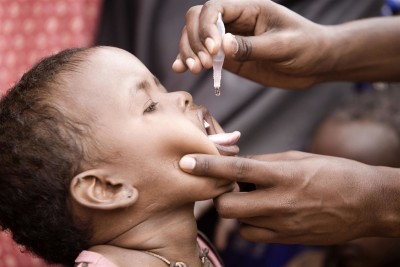THE European Union (EU) has spent N4 billion on the country’s immunisation programme for this year, it was learnt yesterday.
The support came under the EU Support to Immunisation Governance in Nigeria (EU-SIGN).
Training, Contracting Adviser and Procurement Expert for the EU-SIGN, Aminata Sidibe, explained that the support was part of EU’s determination to ensure that Nigeria overcome the disease and obtain the World Health Organisation’s (WHO) certification as a polio-free nation by 2017.
Sidibe, who spoke at the Bi-annual Review Meeting of 23 states and the FCT, which benefited from the fund in Abuja, said: “The EU is committing €150 million into the programme. For this specific programme estimate, N4.3 billion has been committed.”
Anna McAthur, director, CONSEIL SANTE, an organisation through which the EU funds the SIGN programme in Nigeria, said: “The EU-SIGN actually came in at real good time for Nigeria because we’ve just got to the elimination of polio, and we are working towards eradication of polio. Government has set up state primary health care agencies and has advisory body in each state.
The Director of Department of Logistics and Health Commodities at the National Primary Health Care Development Agency, Dr. Mustapha Zubair Mahmud, said the nation must maintain the de-listing for the next two years to enable it get certification.
“We must do all we can to maintain a polio-free country up to 2017, so that we are certified free of polio,” he said.
Focal Person for the EU-SIGN in Nigeria Dr. Adamu Dawud said the highlight of the meeting was to re-emphasise on the nation’s routine immunisation.
The WHO recently delisted Nigeria from the three polio-endemic nations. The others remaining are Afghanistan and Pakistan.
END


Be the first to comment